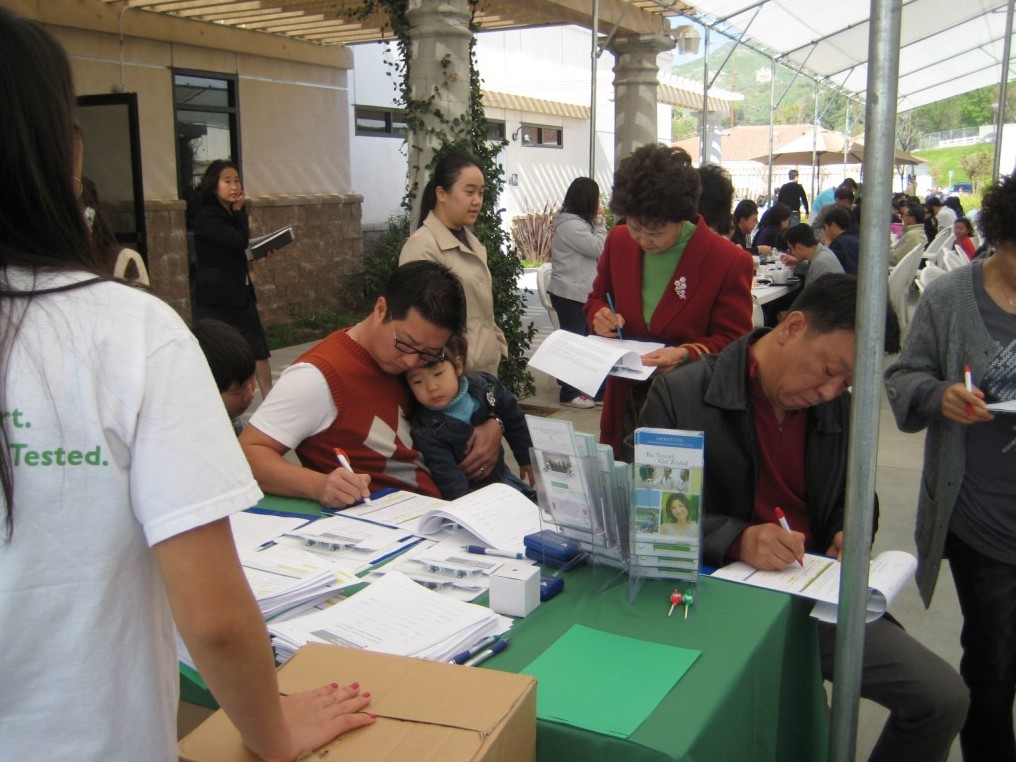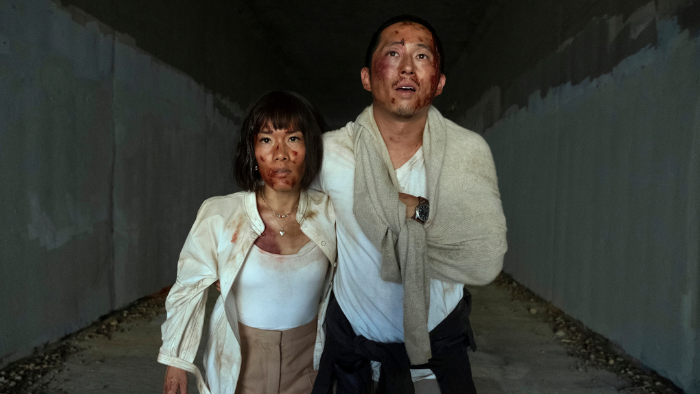This article is a sponsored post and appears as part of KoreAm’s Community Network section.
by DAMIAN KELLY
Services Available to Help Patients Protect Themselves Against the ‘Silent Killer’
Some of the most dangerous diseases are those that infect the body and spread without warning, giving the victim no signs that there is anything wrong. Hepatitis B is one such “silent killer,” as it is often asymptomatic. In addition, Hepatitis B remains in the shadows; it is not mainstream’s society’s disease and is not commonly discussed. Vulnerable populations are often unaware that they are in danger, and even when they are, there is little or no sign that treatment is needed.
Kheir Clinic addresses the need for Hepatitis B screening, education and connection to resources in the community, particularly among Korean Americans who suffer disproportionately from the disease.
According to the Hepatitis B Foundation, it is the most serious liver infection in the world. Transmitted through bloody and infected bodily fluids, Hepatitis B can occur through direct blood-to-blood contact, unprotected sex, use of unsterile needles and from an infected woman to her newborn during the delivery process. An estimated 70 percent of Hepatitis B victims experience no symptoms.
Hepatitis B is especially prevalent in the Asian American and Pacific Islander (AAPI) community. As infants, Asians are infected with the virus from mothers who unknowingly pass the virus to their newborn babies at birth or from exposure to blood from another infected child or adult with whom they live in close contact.
Although AAPIs account for only about 5 percent of the country’s overall population, they make up over 50 percent of the 1.3 million chronic Hepatitis B cases in the United States. According to the Asian Liver Center at Stanford University, half of the mortalities caused by this disease are people of Asian descent.
Hepatitis B prevention is a particularly pressing issue in the Korean American community. Korean Americans are one of the most likely Asian subpopulations to contract Hepatitis B, second only to Vietnamese. Korean Americans have eight times the risk of liver cancer when compared to their Caucasian counterparts.
Services are available at Kheir Clinic to determine whether an individual has Hepatitis B. A liver function test is conducted for all new patients at Kheir Clinic as part of their initial health assessment. The test requires a blood draw in order to analyze and assess the patient. If the results of the test are abnormal, a Hepatitis B test is then administered (also a blood draw). A patient can be diagnosed as either reactive or non-reactive. A reactive test result means the patient will be referred to a liver specialist for a closer look into addressing the patient’s diagnosis. A non-reactive result means the patient doesn’t have hepatitis.
The Hepatitis B test also determines whether the individual has the antibody. If the patient is deemed to be without an antibody, he/she will require the vaccinations, which are offered at Kheir Clinic on a sliding fee scale.
Kheir Clinic offers all services in Korean, which means that patients may be informed and educated about the process in their native language, resulting in better understanding and increased patient empowerment. Kheir also collaborates with local community partners, such as Asian Pacific Liver Center, to increase awareness of Hepatitis B and encourage screening and vaccination.
Take action in the fight against Hepatitis B by calling Kheir Clinic today for a Hepatitis B screening! To schedule an appointment for no and low cost services at Kheir Clinic, please call (213) 637-1070.
Photo at top: A KHEIR-sponsored Hepatitis B screening event held in February of 2008.
This post was sponsored by KHEIR, which is part of KoreAm’s Community Network, a section reserved for local and national nonprofit organizations. The opinions expressed here do not necessarily reflect the views of KoreAm.
* * *
Korean Health Education, Information & Research Center (KHEIR)
The KHEIR Center, a 501(c)(3) nonprofit service agency, was founded in 1986 to serve as a liaison between recently immigrated Korean Americans and existing health and human services in Los Angeles. Since, it has evolved into a comprehensive multi-service agency that renders primary and preventive health care, with a special focus on providing culturally and linguistically appropriate support to the low income, limited-English speaking Korean and Latino residents. The KHEIR Center includes the only full-time community clinic in the United States that offers assistance in English, Spanish and Korean. With funding from government agencies, public and private foundations, and individual donations, KHEIR will continue its mission of caring for the community by providing quality health and human services to the under-served and uninsured residents of Southern California.
www.lakheir.org
KHEIR Administration
3727 W. Sixth St., Ste. 210
Los Angeles, CA 90020
t: (213) 427-4000
f: (213) 427-4008
KHEIR Community Clinic
3727 W. Sixth St., Ste. 200
Los Angeles, CA 90020
t: (213) 637-1070
f: (213) 251-8647
KHEIR Human Services
3727 W. Sixth St., Ste. 230
Los Angeles, CA 90020
t: (213) 637-1080
f: (213) 637-1075
KHEIR Adult Day Health Care Center
Vermont
3030 W. Eighth St.
Los Angeles, CA 90005
t: (213) 389-6565
f: (213) 389-6262





